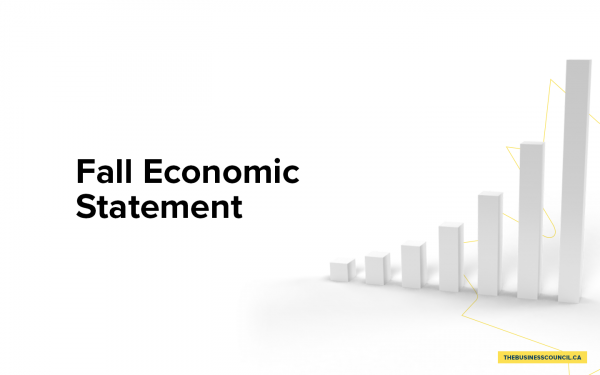Budget 2020: Business groups call for economic growth plan
Ottawa, February 6, 2020 – Five of Canada’s leading business organizations are calling on Ottawa to ensure a better future for middle-class Canadians by embracing a comprehensive plan for economic growth in this year’s federal budget.
“Without a strong economy, our country will not be able to sustain the vital public services on which Canadians rely, and we will not be able to meet the serious challenges Canada faces as a result of climate change and an aging population,” the five business groups said.
The message was delivered by the Business Council of Canada, the Canadian Council for Aboriginal Business, the Canadian Chamber of Commerce, the Canadian Federation of Independent Business, and Canadian Manufacturers & Exporters. Together, they represent companies of all sizes, in all regions of the country, from all sectors of the economy, and employing millions of Canadians.
The business organizations agreed on three priority areas for government action and investment that would enhance economic growth and improve the lives of all Canadians:
- Regulatory reform. The government must be more ambitious in its approach to improving Canada’s costly, burdensome regulatory environment. Canada should aim to become the world’s most efficiently regulated jurisdiction, thereby strengthening the country’s ability to attract jobs, boost business confidence, and encourage badly needed investment.
- Infrastructure. The government must focus more of its infrastructure spending on projects that will increase Canada’s long-term competitiveness. A greater focus on trade-enabling infrastructure would benefit communities of all sizes, including Indigenous, rural and remote communities. It would also help position Canada as the world’s most reliable and sustainable source of food, energy and other resources. Serious consideration should be given to increasing Indigenous equity partnership in infrastructure projects.
- Skills and talent. An aging population threatens the economy in two ways: it makes it harder for employers to find the people they need to expand and grow, and it puts a greater burden on working-age taxpayers to fund health care and elderly benefits. Now is the time for government and business to work together to equip Canadians with the skills that can align and adapt to the evolving economy in order to fill the hundreds of thousands of current and future job vacancies across the country. Immigration should also play a critical role. We will not resolve skills and labour shortages without higher targets for new arrivals.
“Entrepreneurs, business leaders and millions of everyday Canadians across the country are united in their determination to ensure Canada’s success in the years and decades to come,” the business groups said. “They are looking to the federal government to embrace a comprehensive plan for economic growth so that their children and grandchildren can look forward to a brighter future with secure, well-paying jobs, rising living standards and expanded opportunities for all.”











